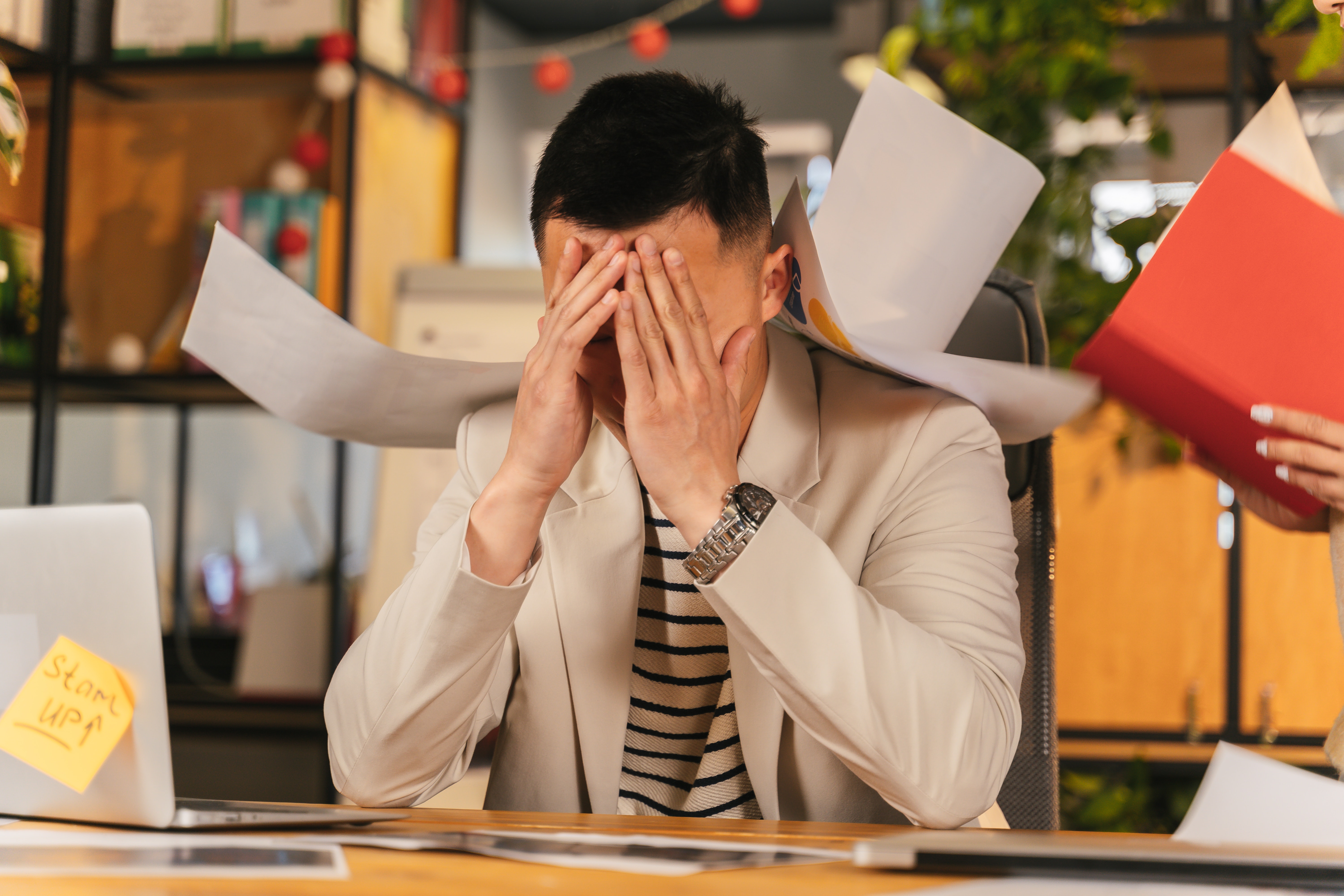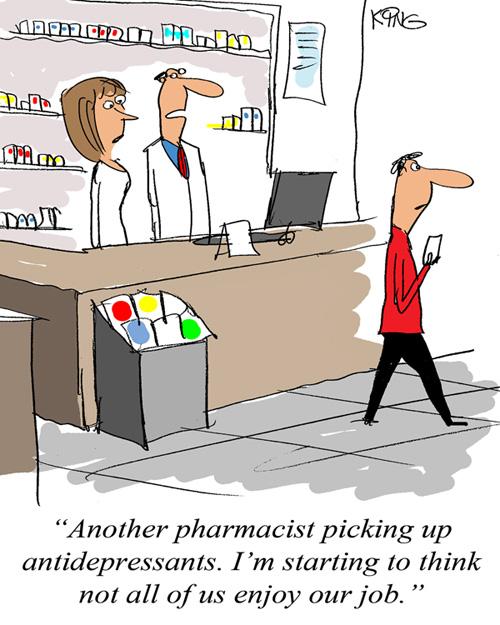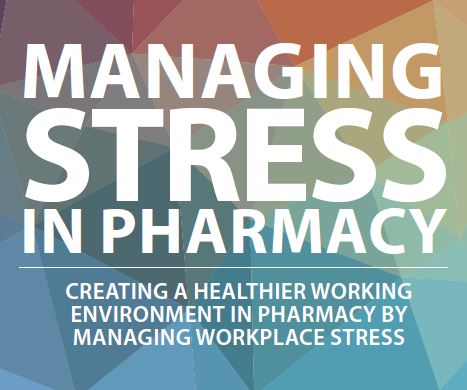
1300 244 910

Learning how to cope with stress is important
for healthcare workers who often work
in very stressful environments.
Browse through our resources below or call the
Pharmacists’ Support Service to speak with a trained
pharmacist who understands the unique pressures
of pharmacy work.
Tips by pharmacy academic Honorary Associate Professor Louis Roller, Centre for Medicines Use and Safety, Faculty of Pharmacy and Pharmaceutical Sciences, Monash University.
Stress is a stimulus, or a challenge to a person’s capacity to adapt to inner and outer demands. It can be physical, emotional and/or psychological. Stress experiences typically produce physiological and emotional arousal and typically elicit cognitive and behavioural efforts to beat the stressor. Every human being is a unique individual and consequently a stressor perceived by one person may not be appraised the same way by another.
Examples of stimulus-based perspective might include highlighting the characteristics of a stressor as physical (‘I am ill or I am in pain’), social (‘this job is taxing’), role (‘being a community pharmacist is stressful’) or task (‘I can’t understand all this IT stuff’). So, what is a stressor? Holmes and Rahe (1967, J Psychosomatic Res) have suggested that life events are stressful to the extent that they precipitate ‘life changes’. It should be noted that these include not only obvious negative events, like bereavement, but also (arguably) positive ones like childbirth and marriage.

Stress can be divided into two types:

Stress can elicit:
Some tips on reducing stress might include (this includes pharmacists):
Some tips on the management of stress might include (yes, you the reader):

(This article is reproduced with permission of the author. Originally published in AJP on Friday 23 November 2012)


Burnout is a state of emotional, physical, and mental exhaustion caused by excessive and prolonged stress. It occurs when you feel overwhelmed, emotionally drained, and unable to meet constant demands.
Some symptoms of burnout include:
Pharmacists often work long hours in noisy and fast-paced environments. This ongoing exposure may leave them increasingly vulnerable to developing burnout. Burnout can have long-term mental and physical health consequences.
Practices to avoid burnout include some simple self-care steps, such as ensuring good nutrition, getting a good sleep, and having a break from work, as well as making sure you have activities you enjoy outside of work, or seeing a counsellor if you need more support for your mental health. You can also call us for support and advice.
Read some more about pharmacist burnout on the Australian Pharmacist website here.

Black Dog Institute has many resources available to support mental health. ‘TEN – The Essential Network for Health Professionals’ helps healthcare workers find resources and support to manage burnout and maintain good mental health. Click below to visit their page and browse through the resources they have available.
There is also a new program, ‘Navigating Burnout’, designed specifically for health professionals. You can access it from the link above or start directly using the link below:
There are activities and resources available that are suitable for different blocks of time, so even if you are very busy, there will be something for you to try. Navigate to the bottom of the home page and select ‘I have less than 5 minutes’ or ‘I have about 15 minutes’ and you will be able to look through some of the shorter resources.

This article by The Conversation discusses the effect of burnout on empathy as a healthcare worker.

This article on the Australian Pharmacist website has some tips for how to deal with stress and burnout, and particularly how to cope with this as a pharmacist.

This webinar recording has three great panellists discussing their experiences of burnout and bringing their expertise to discuss prevention and management of burnout. You may need to create a free AJP account to watch this resource.
This free webinar is hosted by the Society of Hospital Pharmacists of Australia.

This publication “Managing Stress in Pharmacy: creating a healthier working environment in pharmacy by managing workplace stress” has been developed with input from PSS, PDL, PGA, PSA, PPA and SHPA and has been edited by pharmacist Helen Dowling. APPCo generously assisted with the layout and presentation.
The publication has been adapted, with permission, from a 2012 New Zealand document “Workplace Pressure in Pharmacy: practical advice for New Zealand pharmacists, pharmacy staff and employers” in order to reference Australian legislation, guidelines and competency standards.
The publication includes a range of tips, resources and references for pharmacists to consider when looking at issues creating stress in a pharmacy workplace.
Please share this information with your workplace colleagues in order to create a healthier working environment.
We have developed this resource to assist with developing practical support strategies when you are coping with stress. At the end of the document there is a worksheet to help you to identify some practical strategies in your own life.
Support for Pharmacists 2021 Designed & Developed by VW Themes
| Cookie | Duration | Description |
|---|---|---|
| cookielawinfo-checkbox-analytics | 11 months | This cookie is set by GDPR Cookie Consent plugin. The cookie is used to store the user consent for the cookies in the category "Analytics". |
| cookielawinfo-checkbox-functional | 11 months | The cookie is set by GDPR cookie consent to record the user consent for the cookies in the category "Functional". |
| cookielawinfo-checkbox-necessary | 11 months | This cookie is set by GDPR Cookie Consent plugin. The cookies is used to store the user consent for the cookies in the category "Necessary". |
| cookielawinfo-checkbox-others | 11 months | This cookie is set by GDPR Cookie Consent plugin. The cookie is used to store the user consent for the cookies in the category "Other. |
| cookielawinfo-checkbox-performance | 11 months | This cookie is set by GDPR Cookie Consent plugin. The cookie is used to store the user consent for the cookies in the category "Performance". |
| viewed_cookie_policy | 11 months | The cookie is set by the GDPR Cookie Consent plugin and is used to store whether or not user has consented to the use of cookies. It does not store any personal data. |